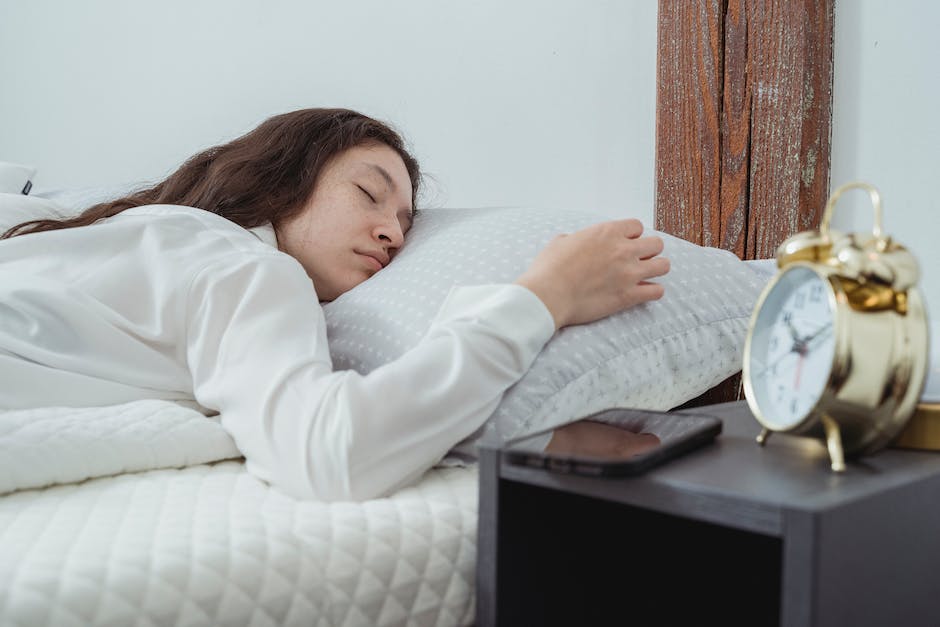For many of us, getting up early in the morning can be a daunting task. With countless distractions, stresses and responsibilities, achieving this simple goal often seems unattainable. However, with the right knowledge and techniques, it’s entirely possible to transform your mornings. Establishing a consistent sleep routine is key; understanding your circadian rhythm and how to manipulate it to your benefit can drastically change your wake-up time. Additionally, implementing a feasible routine in the morning not only enhances our productivity but also kick-starts our day on a positive note. Knowing the do’s and don’ts of waking up early could be the difference between hitting the snooze button and having an early, productive start to your day.
Establishing a consistent sleep routine
Understanding the Importance of Sleep Hygiene and Routine
Sleep hygiene refers to the habits and behaviors you engage in surrounding your sleep. Good sleep hygiene can vastly improve the quality of sleep, making you feel more refreshed upon waking. For instance, maintaining a consistent bedtime routine primes your body to expect sleep at a certain time, signaling the release of melatonin, your body’s natural sleep hormone. This means that even if you’re aiming for an earlier wake-up time, trying to force it by staying up later can actually be counterproductive.
Your Body’s Natural Circadian Rhythm
Your body operates on a set cycle known as the circadian rhythm. This is a 24-hour internal clock that influences your energy levels, mental alertness, and sleep-wake cycle. It responds to light and dark: daylight signals your body to wake up, while darkness signals it to prepare for sleep. You can use this knowledge to help reset your circadian rhythm. Exposure to natural light early in the morning can make waking up easier. Meanwhile, limiting exposure to artificial light—especially the blue light emitted by electronic devices—in the evening can help prepare your body for sleep.
The Right Time to Go to Bed to Wake Up Early
The key is consistency. Going to bed and waking up at the same time every day helps regulate your body’s clock, making it easier to rise in the morning. Most adults require about 7 to 9 hours of sleep. Figure out what time you need to wake up, and count backwards to determine your ideal bedtime.
Identifying Common Obstacles
Certain behaviors can hinder your ability to establish a consistent sleep routine. Overconsumption of caffeine can make it difficult to fall asleep at night, as can eating heavy meals close to bedtime. Alcohol can also disrupt your sleep cycle, causing you to wake up multiple times during the night.
Your sleep environment can also contribute to sleep problems. A room that’s too hot or too cold, too noisy, or too bright can make it harder to fall asleep and stay asleep.
Overcoming Sleep Obstacles
Reducing caffeine intake, especially in the afternoon and evening, can help ensure that you fall asleep when you want to. Similarly, having a lighter meal in the evening can facilitate better sleep. Establishing a relaxing pre-bedtime routine can signal your body that it’s time to wind down. This could include activities like reading, meditating, or taking a warm bath.
Make sure your sleep environment is conducive to good sleep. Keep the temperature cool, as this is most conducive to sleep. Use earplugs or a white noise machine to block out disruptive sounds, and consider a sleep mask or blackout curtains to keep your bedroom dark.
Incorporating these practices into your sleep routine can greatly increase your chances of being able to wake up early consistently. Just remember, changes in sleep habits often take a little time to become effective, so be patient with yourself as your body adjusts to the new routine.

Feasible morning routines and their effects
Harnessing the Power of Early Mornings
Waking up early is known to be a common practice among many successful individuals. An array of benefits such as increased productivity, enhanced physical and mental health, and improved time management are just some of the advantages attributed to this habit.
An early morning routine often begins with a consistent wake-up time. This doesn’t necessarily mean rising with the sun, but setting an alarm for a time that allows for a productive start to the day. This could vary from 5 a.m. to 7 a.m., differing from person to person based on their individual sleep schedule and lifestyle.
Do: Make sure to go to bed early enough to ensure you get a sufficient amount of sleep. An adult typically requires 7-9 hours of sleep per night, so plan your sleep time accordingly.
Don’t: Rely on caffeine or energy drinks to help you get through the day. These can disrupt your natural sleep pattern and decrease the quality of your sleep.
Different Morning Routines and Their Pros and Cons
A popular morning routine includes exercise. Regular physical activity in the morning helps to boost metabolism and energy levels throughout the day. It also encourages better sleep at night.
Do: Consider a variety of exercises such as yoga, stretching, walking, or a workout regime to start your day.
Don’t: Over-exert yourself, especially if you are not used to physical activities first thing in the morning. Start slow and gradually build your stamina.
Another common morning routine is meditating. Meditating can help reduce stress and increase mental clarity, helping you face the challenges of the day with a calm, focused mind.
Do: Try different forms of meditation such as mindfulness, guided meditation or breathing exercises to find what suits you the best.
Don’t: Get frustrated if you find it difficult to meditate initially. Like any new habit, it takes time to get accustomed to it.
Contributions of Early Rising to Success
Many successful individuals attribute their achievements in part to their early morning routine. They use this time to plan their day, prioritize tasks and catch up on reading or emails. By starting their day early, they are able to get a substantial amount of work done with fewer interruptions.
Do: Create a to-do list or use a planner to organize your day. This can greatly enhance time management and productivity.
Don’t: Check your phone or emails first thing after waking up. This can create early morning stress and anxiety, leading to a decline in overall productivity.
Tailoring Your Morning Routine
Identifying the morning routine that works best for you requires an understanding of your personal goals, lifestyle, and body clock. The key is to remain consistent in order to establish a routine and reap the benefits over time.
Do: Experiment with different routines or habits until you find one that fits your lifestyle and maximizes your morning.
Don’t: Blindly follow someone else’s morning routine. What works for others may not necessarily work for you, so listen to your body and understand what it needs.
In conclusion, getting up early can make for a productive and efficient start to the day. With the right habits and routines in place, your mornings can become a vital foundation for success.

Do’s and Don’ts for waking up early
Recognize the Importance of Adequate Sleep
Waking up early starts with going to bed early. It’s not enough to just set an alarm for the crack of dawn; you need to ensure your body gets adequate sleep. Adults typically need between seven and nine hours of sleep each night. So, if you want to be awake by 6 AM, you should aim to be in bed and ready to fall asleep by 10 PM.
Establish a Nighttime Routine
Establishing a nighttime routine can aid in signaling to your body that it’s time for bed. This routine might include activities like reading a book, writing in a journal, or taking a warm bath or shower. Try to avoid activities that can disrupt your sleep, such as watching television or looking at screens, as the light emitted by these devices can interfere with your body’s preparation for sleep.
Avoid Caffeine and Alcohol
It’s also helpful to avoid caffeine and alcohol close to bedtime. Both of these substances can interfere with your ability to fall asleep. If you’re a fan of a late-night cup of coffee or a glass of wine, aim to have these earlier in the evening.
Optimize Your Bedroom for Sleep
Optimize your sleeping environment as much as possible. The best environment for sleep is one that is dark, quiet, and cool. Use blackout curtains or an eye mask to block out light, consider using earplugs or a noise machine to drown out disruptive sounds, and set your thermostat to a cool temperature (ideally between 60 and 67 degrees Fahrenheit).
Avoid the Snooze Button
While it might be tempting to hit that snooze button, try to resist. Snoozing can disrupt your sleep cycle, making you feel groggy and tired. Instead, set your alarm for the exact time you need to be up, and make the effort to get out of bed as soon as it goes off.
Implement Physical Activity
Adding physical activity to your morning routine can aid in waking up early. Exercise improves mood and energy levels, which can make early mornings more enjoyable. Try incorporating a morning walk or yoga session into your routine to start your day off on the right foot.
Stay Consistent
Last but not least, the key to getting up early every day is consistency. Strive to stick to your sleep schedule even on weekends or days off. This can help regulate your body’s internal clock and make it easier to wake up early on a regular basis.
Remember that forming a new habit takes time. It may take several weeks for your body to adjust to a new sleep schedule. Be patient with yourself and try not to get discouraged if progress is slower than you’d like. Your consistency will pay off in the long run.

Adopting a healthier sleep routine and embracing the art of waking up early isn’t just about accomplishing more tasks; it’s about enhancing the quality of your life. Our days are unquestionably shaped by how we spend our mornings. By implementing the strategies and routines discussed, you can train your body to wake up early and make the most of the quiet, uninterrupted hours of the morning. It may be challenging initially, but over time, it becomes a simple habit. Remember, it’s not about being the first bird to catch the worm, but rather about creating a productive, balanced life. So embrace each morning, prepare for the day, and see just how beneficial waking up early can be.
